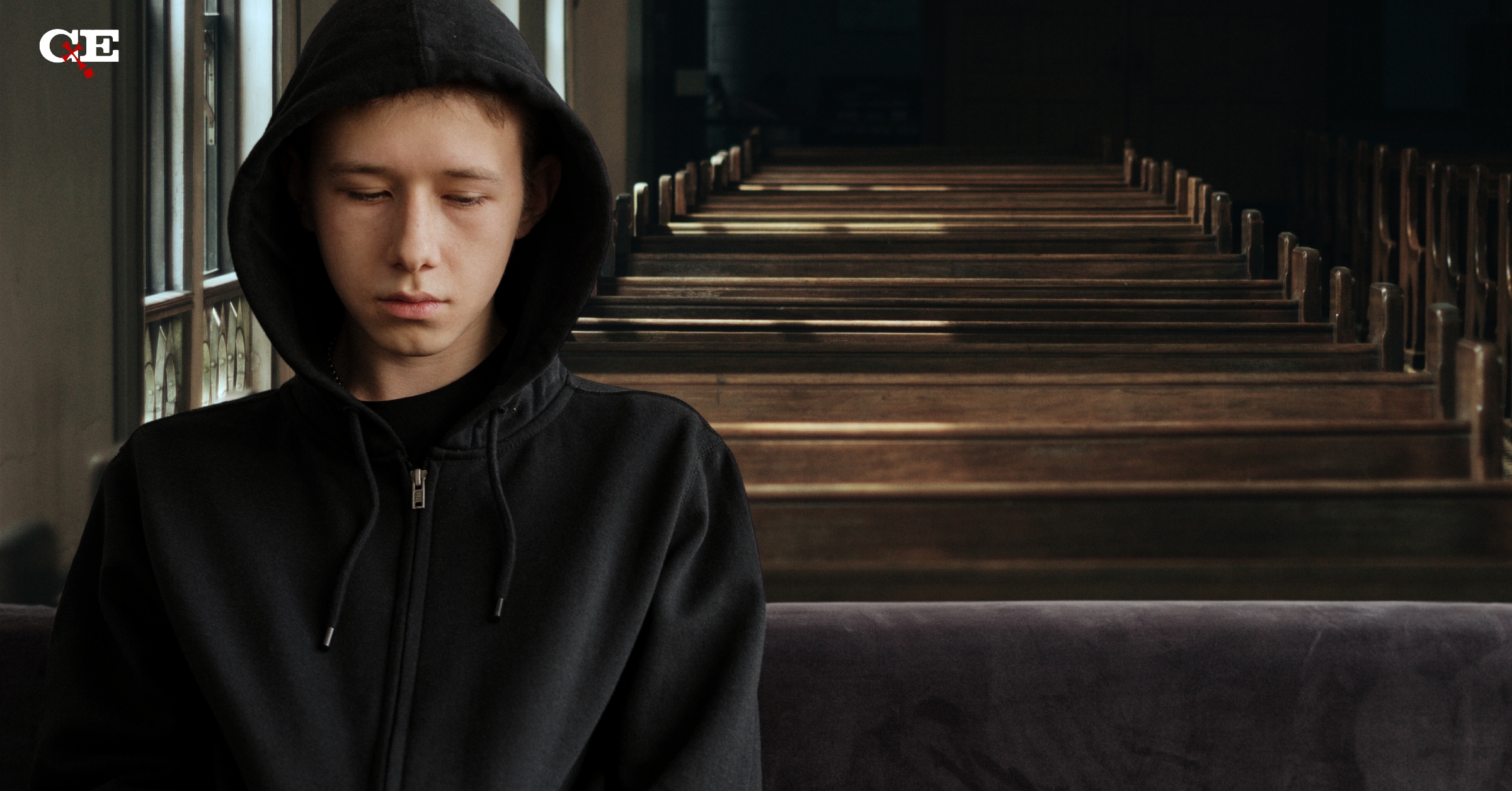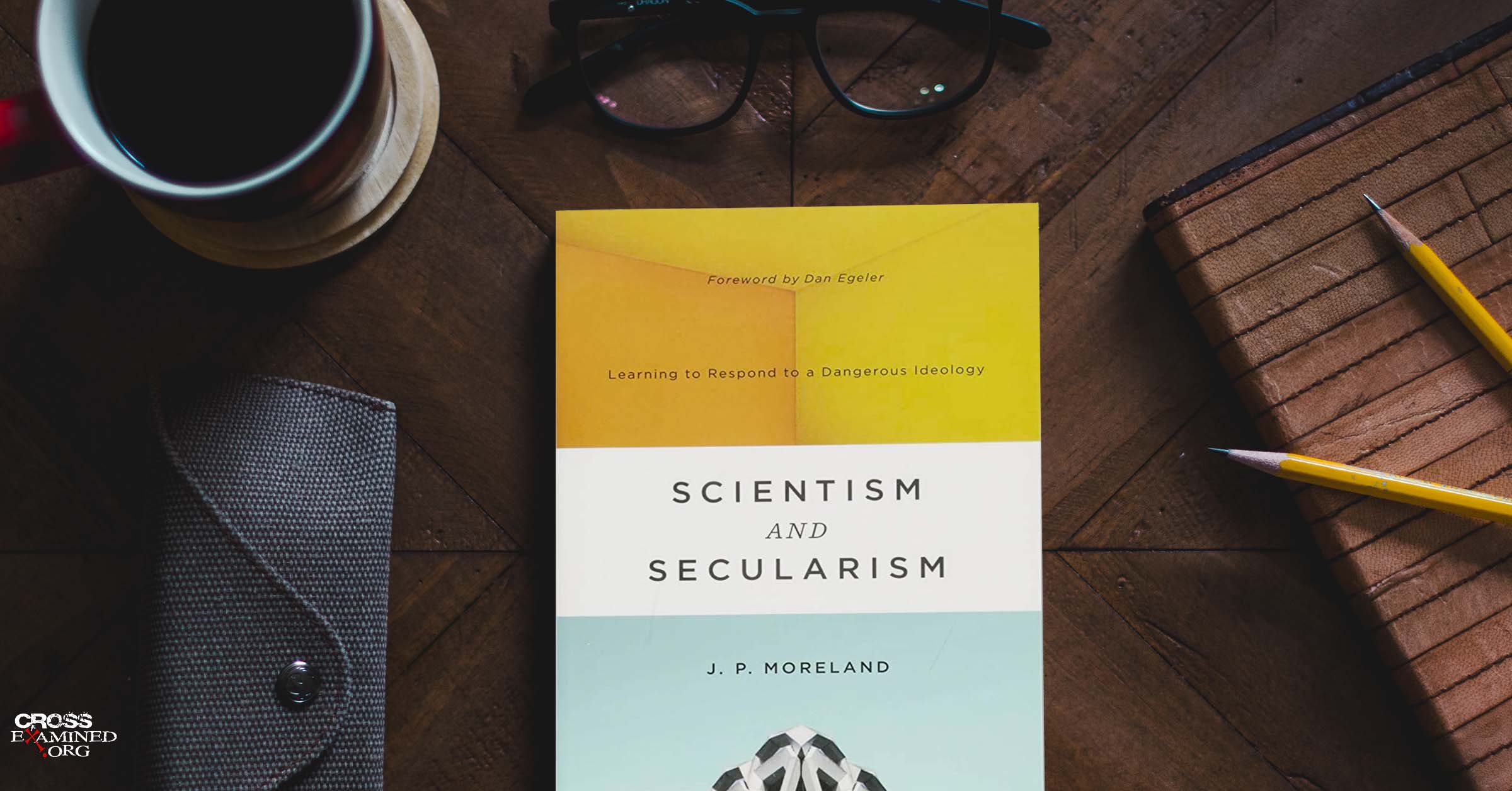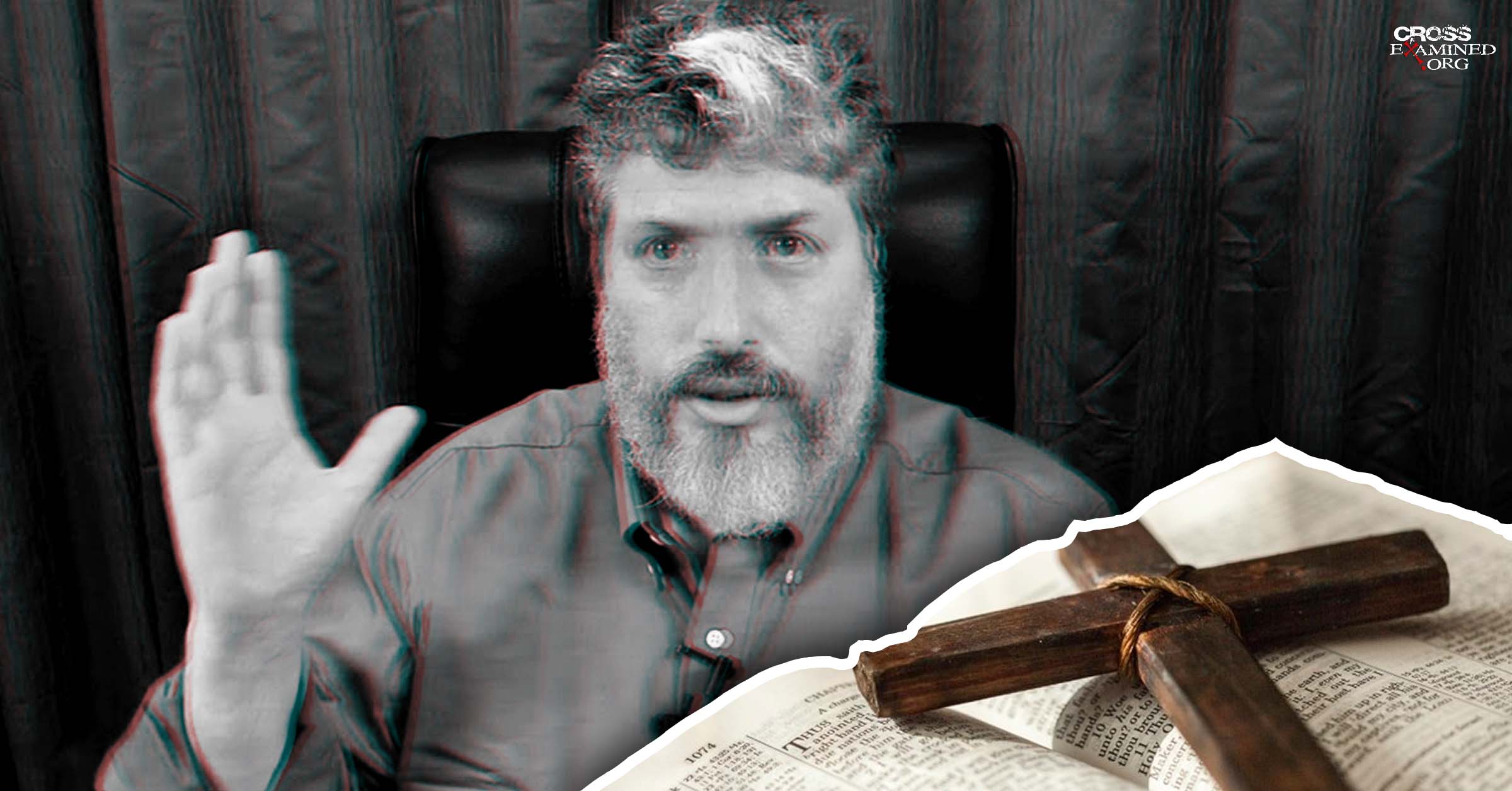By Jonathan McLatchie
Rabbi Tovia Singer is an orthodox Jewish rabbi and the founder and director of Outreach Judaism. He is widely known for his counter-missionary polemics and his criticism of the New Testament presentation of Jesus as the Hebrew Messiah (see his two volume set, Let’s Get Biblical: Why doesn’t Judaism accept the Christian Messiah? [i]). In a recent series of videos published on Rabbi Singer’s YouTube channel, he responds to remarks made by Professor R.L. Solberg following their recent debate in Nashville, Tennessee on whether Jesus is the promised Hebrew Messiah. In this and subsequent articles, I want to address some of the claims made by Rabbi Singer in this series of videos that I hold to be in error. In this article, I will address the most recent video in this series, which is provocatively titled, “Colossal contradictions in the Gospels!” In this video, Singer advances two supposed instances of contradiction between the gospel accounts, one relating to the timing of Jesus’ passion, and the other relating to the resurrection. Let us address both in turn.
On What Day Was Jesus Crucified?
In the video, Tovia argues that John has Jesus crucified on the eve of Passover, contrary to the synoptic gospels that have Jesus crucified on the first day of Passover. The motivation for this redaction on John’s part supposedly is that John wanted to have Jesus crucified on the eve of Passover, when the Paschal lambs were being slaughtered, since Jesus is thought by John to be the fulfilment of the imagery associated with the Passover lamb.
Rabbi Singer reads John 19:14 as indicating that it was the day of preparation for Passover. However, this is not a necessary translation of the genitive word for Passover, πάσχα and in fact English translations usually render this expression “day of preparation of the Passover.” In fact, this term (‘day of preparation’) is also used by Mark (15:42), who defines it as the day before the Sabbath. This accords with John 19:31, which says, “Since it was the day of Preparation, and so that the bodies would not remain on the cross on the Sabbath (for that Sabbath was a high day), the Jews asked Pilate that their legs might be broken and that they might be taken away.” Verse 42 also indicates the hurriedness of the burial of Jesus in a tomb that was close at hand, since it was the Jewish day of Preparation. Therefore, John concurs with Mark that Jesus’ death took place the day prior to the Sabbath. This is what he means by “preparation.” Though he adds that this Sabbath was a high day, this most probably means that it wasn’t any ordinary Sabbath day, but rather a Sabbath during the feast of unleavened bread — that is to say, it was a particularly special feast day.
Singer also misreads John 18:28, where the Jewish leaders are concerned about entering Pilate’s dwelling, lest they be defiled and thereby become unable to eat the Passover. According to Singer, this undermines the contention that the Passover Seder had already been consumed. Singer apparently misses that, supposing them to be concerned about the Passover Seder, their worry would make no sense since their defilement would expire at sundown (and they could partake of the meal after washing). Therefore, their worry must concern some meal other than the Seder. And, in fact, the initial Seder, or supper, that commences the Passover celebration is not the only ritual meal that is eaten during Passover. There is even another ritual meal, the chagigah (“food offering”), that is consumed during the following day. This is supported by Numbers 28:18-23, in which we read,
18 On the first day there shall be a holy convocation. You shall not do any ordinary work, 19 but offer a food offering, a burnt offering to the LORD: two bulls from the herd, one ram, and seven male lambs a year old; see that they are without blemish; 20 also their grain offering of fine flour mixed with oil; three tenths of an ephah shall you offer for a bull, and two tenths for a ram; 21 a tenth shall you offer for each of the seven lambs; 22 also one male goat for a sin offering, to make atonement for you. 23 You shall offer these besides the burnt offering of the morning, which is for a regular burnt offering.
Verse 18 indicates that the food offering was to be offered on the first day of unleavened bread (which would be the fifteenth of Nisan), the same day — as the Jews reckon days — that the Seder was consumed. Verse 23 indicates that these were to be offered in addition to the regular morning burnt offering, which implies that the Chagigah was eaten during the day time. The first century Jewish historian Flavius Josephus indicates multiple times that the Jews used the term “Passover” to refer to the entirety of the feast of unleavened bread:
- “As this happened at the time when the feast of unleavened bread was celebrated, which we call the Passover…” Josephus, Antiquities 14.21
- “As the Jews were celebrating the feast of unleavened bread, which we call the Passover…” Josephus, Antiquities 18.29
- “And, indeed, at the feast of unleavened bread, which was now at hand, and is by the Jews called the Passover…” Josephus, Wars 2.10
Therefore, John’s account in fact dovetails perfectly with Mark’s. The concern of the chief priests could not have been about the initial Passover seder, since their defilement would have expired at sundown and, following washing, they would have been able to partake of the seder in the evening. The seder was already over, having been consumed the previous evening, and they must be concerned about some other meal in Passover, most likely the chagigah.
Rabbi Singer claims that John 13 does not concern a Passover seder. However, this again is false. We read in John 13:1-2:
Now before the Feast of the Passover, when Jesus knew that his hour had come to depart out of this world to the Father, having loved his own who were in the world, he loved them to the end. 2 During supper…
In Greek, the text does not say that the supper was before the feast. Rather, it says that before the feast, Jesus loved his disciples to the end. D.A. Carson notes rightly that “there is nothing in the words themselves to discourage us from taking the clause as an introduction to the footwashing only, and not to the discourses that follow the meal.” [ii]
Indeed, the most natural reading of the reference to the supper in John 13:2, in light of 13:1, is that the last supper was in fact the Passover meal. Craig Blomberg concurs [iii]:
Verse 1 thus stands as a headline over the entire passion narrative (cf. Ridderbos 1997: 452). Because Passover began with a supper-time meal as its most central ritual (and 1 Cor. 11:20 speaks of the Last Supper explicitly as a deipnon), to hear then that the supper was being served (v. 2) would naturally suggest that the Passover had begun (Ridderbos 1997: 455; cf. Michaels 1983: 230; Kleinknecht 1985: 370–371; Burge 2000: 365–367), not that this was some separate supper prior to the Passover (as for Casey 1996: 20–21). If there is still any doubt, as Cullen Story (1989: 317) explains, ‘The presence of Judas, Jesus’ prediction of his betrayal, Judas’ departure from the table (implicit in the Synoptics, explicit in John), the affirmation by Peter of unswerving loyalty to Jesus, and Jesus’ prediction of his denial—all of these circumstances together form solid lines of connection between the meal in John 13 and the Synoptic account of the holy supper.’ Almost certainly, then, John intended his audience to understand that he was beginning to describe events that took place on ‘Maundy Thursday’ night, as part of the Passover meal, just as they would already have learned in the oral kerygma.
Though Singer appeals to John 13:29 where some speculate that Judas has been charged with getting what they need for the feast, this argument doesn’t work either since the feast of unleavened bread continues for another week, which easily could be the meaning of the phrase ‘the feast’ in this context. One might object to this that, if there were indeed Passover night, the shops would not have remained open. However, as D.A. Carson notes [iv],
One might wonder, on these premises, why Jesus should send Judas out for purchases for a feast still twenty-four hours away. The next day would have left ample time. It is best to think of this taking place on the night of Passover, 15 Nisan. Judas was sent out (so the disciples thought) to purchase what was needed for the Feast, i.e. not the feast of Passover, but the Feast of Unleavened Bread (the ḥagigah), which began that night and lasted for seven days. The next day, still Friday 15 Nisan, was a high feast day; the following day was Sabbath. It might seem best to make necessary purchases (e.g. more unleavened bread) immediately. Purchases on that Thursday evening were in all likelihood possible, though inconvenient. The rabbinic authorities were in dispute on the matter (cf. Mishnah Pesahim 4:5). One could buy necessities even on a Sabbath if it fell before Passover, provided it was done by leaving something in trust rather than paying cash (Mishnah Shabbath 23:1).
Another aspect of John 13:29, curiously omitted by Singer — which actually supports my contention that this meal was in fact the Passover seder — is the disciples’ speculation that Judas had been charged by Jesus to give something to the poor. Carson notes that “it was customary to give alms to the poor on Passover night, the temple gates being left open from midnight on, allowing beggars to congregate there. On any night other than Passover it is hard to imagine why the disciples might have thought Jesus was sending Judas out to give something to the poor: the next day would have done just as well.” [v]
In addition to the foregoing considerations, two undesigned coincidences confirm that the last supper in John 13 is the same meal as spoken of in the synoptic gospels. In the parallel account of the last supper in Luke 22:27, Jesus says, “For who is the greater, one who reclined at table or one who serves? Is it not the one who reclines at table? But I am among you as the one who serves.” What does Jesus mean by this phrase, and to what could he be referring? When we turn over to John 13:4-5, we learn that Jesus on this same occasion gave the disciples an object lesson in servanthood: “[Jesus] laid aside his outer garments, and taking a towel, tied it around his waist. Then he poured water into a basin and began to wash the disciples’ feet…” This act (not reported by Luke) casually dovetails with Jesus’ statement in Luke 22:27 (not reported by John) that, though he is the greatest among them, he nonetheless acts as their servant. One may ask, however, why Jesus washes the disciples’ feet on this particular occasion. Luke 22:24 gives us a detail not supplied by John that provides us with some relevant background: “A dispute also arose among [the disciples], as to which of them was to be regarded as the greatest.” Luke, then, reports the occasion that gave rise to Jesus’ object lesson in servanthood, but not the object lesson itself. John reports the object lesson but not the occasion that gave rise to it. The accounts dovetail so casually and artlessly that it supports that these are in fact the same meal, and rooted in historical memory.
The Mary Magdalene Problem
Tovia also gives another alleged discrepancy regarding the resurrection accounts, where he points out that, according to Matthew, the women all met Jesus (Matthew 28:9-10), whereas in John it looks like Mary, in her report to Peter & the disciple whom Jesus loved, has no idea what had happened to Jesus’ body (John 20:1-2). One would predict, supposing those accounts to be both anchored in historical memory, that Mary must have left the larger group of women prior to their encounter with the risen Jesus. Indeed, I can hardly see any other viable way of harmonizing those accounts. But this is precisely what is suggested by a close reading of John 20:2: “So she ran and went to Simon Peter and the other disciple, the one whom Jesus loved, and said to them, “They have taken the Lord out of the tomb, and we do not know (οὐκ οἴδαμεν) where they have laid him.” The use of the plural verb there suggests that she had in fact left the larger group of women and that there had in fact been others with her (which comports with the synoptics). This harmonization is not owed to us by the text, supposing them to be in conflict, but the fact that the only viable harmonization is suggested by a close reading of John suggests that these accounts are in fact based on historical memory, being independent accounts that dovetail.
According to John, Mary Magdalene ran back immediately upon noticing the stone rolled away and surmising or seeing the tomb empty (there may have been one or two other women with her, we don’t know). Notice that Matthew does not say that the angel appeared to Mary Magdalene, but rather that he spoke to the women. Thus, it was the women other than Mary Magdalene who left the tomb together as described in Matthew and, while going to tell the disciples, saw Jesus on the way. Matthew says that plural women left the tomb and that “they” saw Jesus on the way but does not expressly say that Mary Magdalene was with them at that time. Again, he may just not have known that she had left the group already, but he does not explicitly say either way. John knew since he was one of the two disciples (along with Peter) to whom Mary Magdalene reported the empty tomb and missing body of Jesus.
We can pick up Mary Magdalene’s story as reported by John. She ran back to get Peter and John immediately upon seeing the stone rolled away. They came back to the tomb with or slightly ahead of her. By this time the rest of the women have already seen the angels and left. They may even be seeing Jesus on their own route back into the city while Peter, John, and Mary Magdalene are on their way back to the tomb. It must be borne in mind that the old city of Jerusalem was a maze. There is no reason at all to expect that these groups would have run into each other. Mary Magdalene (as explained in John) still believes Jesus is dead at this point. She hangs around after Peter and John have looked at the tomb and left in puzzlement. She peers back into the tomb and the angels reveal themselves to her, but she does not understand. She turns around, grieved, and sees Jesus and has the dialogue with him of which we read in John 20. She then goes back to tell the disciples more about all of this. All this time she is not with the other women. When the other women have seen Jesus, they run and tell at least some of the disciples, though they might have to wait for Peter and John to get back from their tomb visit. Of course, we also do not know for sure that all of the disciples were staying together. The other women may actually have gone to see a different set of them in some different location.
Conclusion
In summary, though the alleged discrepancies offered by Rabbi Singer require some investigation to untangle, closer inspection — and more careful reading of the relevant texts — reveals the arguments to be unfounded. The solutions that I have offered to these challenges are not strained or forced harmonizations, but rather are suggested from within the texts themselves. As the nineteenth century Anglican scholar T.R. Birks once noted, “the very test of historical truth…is found in the substantial unity of the various narratives, their partial diversity, and the reconcilable nature of that diversity, when due allowance is made for the purpose of each writer, and the individual character of their separate works.” [vi]
Footnotes
[i] Tovia Singer, Let’s Get Biblical! Why Doesn’t Judaism Accept the Christian Messiah? Volume 1 (RMBN Publishers, 2014).
[ii] D. A. Carson, The Gospel according to John, The Pillar New Testament Commentary (Leicester, England; Grand Rapids, MI: Inter-Varsity Press; W.B. Eerdmans, 1991), 460.
[iii] Craig L. Blomberg, The Historical Reliability of John’s Gospel (England: Apollos, 2001), 187–188.
[iv] D. A. Carson, The Gospel according to John, The Pillar New Testament Commentary (Leicester, England; Grand Rapids, MI: Inter-Varsity Press; W.B. Eerdmans, 1991), 475.
[v] Ibid.,
[vi] T.R. Birks, Horae Evangelicae, or The Internal Evidencce of the Gospel History (London: Seeleys, 1852), 269-271.
Recommended resources related to the topic:
Can All Religions Be True? mp3 by Frank Turek
How Can Jesus be the Only Way? Mp4, Mp3, and DVD by Frank Turek
____________________________________________________________________________________________________________________________________________________
Dr. Jonathan McLatchie is a Christian writer, international speaker, and debater. He holds a Bachelor’s degree (with Honors) in forensic biology, a Masters’s (M.Res) degree in evolutionary biology, a second Master’s degree in medical and molecular bioscience, and a Ph.D. in evolutionary biology. Currently, he is an assistant professor of biology at Sattler College in Boston, Massachusetts. Dr. McLatchie is a contributor to various apologetics websites and is the founder of the Apologetics Academy (Apologetics-Academy.org), a ministry that seeks to equip and train Christians to persuasively defend the faith through regular online webinars, as well as assist Christians who are wrestling with doubts. Dr. McLatchie has participated in more than thirty moderated debates around the world with representatives of atheism, Islam, and other alternative worldview perspectives. He has spoken internationally in Europe, North America, and South Africa promoting an intelligent, reflective, and evidence-based Christian faith.
Original Blog Source: https://bit.ly/3meSo0c









